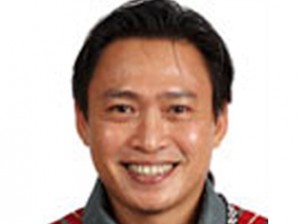Cordillera officials call for ‘truly equitable’ budget after PDAF
BAGUIO CITY, Philippines — The inevitable end of the Priority Development Assistance Fund (PDAF) has led legislators and technocrats back to the likely roots of the much vilified pork barrel -– an inequitable budget process.
Ifugao Rep. Teodoro Baguilat Jr. on Saturday said lawmakers have been discussing how to improve the system used to divide the national wealth and ensure that no region or province would be placed at a disadvantage after the abolition of the pork barrel.
This is because the government allocates revenues to the provinces according to a community’s population, its territorial size and its economy – the three classic standards of measurement used by economists and local governments for decades, according to Juan Ngalob, former Ilocos regional director of the National Economic and Development Authority (NEDA).
The government divides annual resources accumulated from investments, taxes and fees among 17 regions, 80 provinces, 138 cities, 1,496 towns and 42,025 villages.
In 2014, the Cordillera Administrative Region would be receiving the smallest budgetary slice because of its relatively small population and its poor growth performance, according to the Department of Budget and Management. The upland region was allocated P31.7 billion in the draft budget measure.
Article continues after this advertisementIn 2012, the upland region posted a 1-percent growth in its Gross Regional Domestic Product. The GRDP measures the value of goods and services in a region.
Article continues after this advertisement“It is because the Cordillera does not get enough which is why the pork barrel had been useful to us,” said Baguilat, a former Ifugao governor.
He described the pork barrel as augmentation funds, which supply projects that the regular budget could not provide, although it had been corrupted by a system that allowed Congress “absolute discretion and weak accountability checks” over the PDAF.
Given the outrage over PDAF and the Malampaya Fund that made up Malacañang’s own pork barrel, fixing the disproportionate sharing of resources would remove the justification for the pork barrel, said Ngalob, who retired in September.
Baguilat said lawmakers might not necessarily drop population or land size as standards for measuring a region’s true worth.
“The problem with the national planning process is that it sticks to those standards,” he said.
“Maybe the solution is to identify [new resource allocation standards which express] other values aside from population or a region’s contribution to the Gross Domestic Product (or GDP which measures the value of goods and services in the country),” he added.
Baguilat said he and the Cordillera Regional Development Council would ask the national government to also measure a community’s aptitude with regard to climate change mitigation, their value as heritage sites or their importance to the environment in calculating how a year’s tax should be shared among provinces.
Baguilat said the upland region could get a bigger budget if the national government valued it as a watershed cradle for Luzon provinces.
The Cordillera mountains are the sources of water that power many hydroelectric dams and from which lowland farmers get irrigation water, according to Baguilat.
“The Cordillera is the most unique of Philippine regions. It is mountainous, predominantly indigenous and is rich with beautiful landscapes and resources. Unfortunately for us, the computation of the GDP does not include our competitive edge,” Baguilat said.
“For instance, GDP doesn’t factor in the upland water that powers dams or irrigates farms of our neighboring regions, nor does it consider the carbon sequestration of our watersheds that mitigate climate change impact,” he said.
